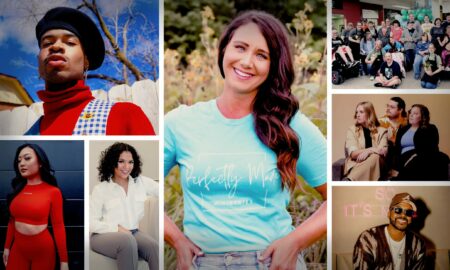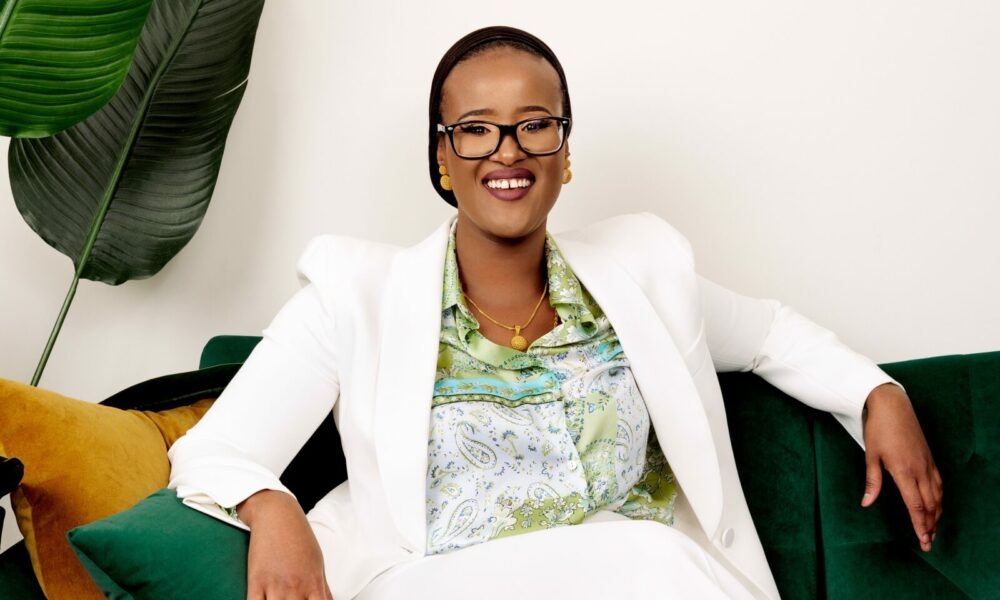

Today we’d like to introduce you to Abyan Bashir.
Hi Abyan, can you start by introducing yourself? We’d love to learn more about how you got to where you are today?
I came to this country at about 3 years old, the daughter of an immigrant mother who fled a war-torn country in hopes that her children would live better lives. My father was killed in the war and my mother took on the struggle of raising 9 children alone in a foreign land. Many Somali families that came to America seeking refuge share this story, which has resulted in many untold stories of trauma, eventually leading to significant mental health issues for the community here. Mental health difficulties are a persistent and pervasive issue in the Somali community. Survivors of war endured displacement and disruption of their lives, along with additional trauma throughout the journey of escaping the violence. Many of these victims are women and children. Mothers have experienced the loss of their children through illness and violence, while others have been beaten and raped. In addition, children of war-torn countries have significant developmental disruptions that are later manifested as mental health issues. After arriving to their host country parents are unaware of how to help their children and lack an understanding of what their children are experiencing. The belief that life would only change for the better after escaping war and violence, the harsh reality is that they still deal with remnants of the trauma they experienced and don’t know where to start or who to ask for help. We see the intergenerational impact of trauma on children, many of whom are now adults themselves. Research on historical and intergenerational trauma, as well as epigenetics, has confirmed the complex set of intersecting factors that affect mental health outcomes for individuals and communities.
Growing up here, sandwiched between two cultures, has given me a unique perspective on the deficits in systems of care for families from different cultural backgrounds. I have witnessed extended family and other community members experiencing mental illness for which they did not seek services. Many factors contribute to the low utilization of mental health resources in the East African community, the subject of my doctoral dissertation. The distrust of government and medical entities that trace back to how these systems ran in the home country, and language barriers for the older generation and newer immigrants are formidable barriers to even attempting to find help. The lack of mental health providers that understand the Muslim faith and Somali culture leads to their experiences being misunderstood and pathologized by mental health providers. Misdiagnosis of the impact of trauma and over-diagnosis of certain serious mental health conditions, such as psychosis, has only added to mental health disparities in immigrant and refugee communities.
Early in college, I could see that I needed to find a culturally informed way to translate my western education so that I could work in culturally competent ways with people from diverse religious, ethnic, racial and socioeconomic communities. Deciding to deepen my knowledge and skills, I attended the University of IL at Chicago earning a master’s degree in social work with a concentration in mental health. Upon finishing my degree, I took a job at a community mental health clinic in MN where I provided culturally appropriate mental health services and psychoeducation to people from diverse cultural groups. Working with community leaders to identify barriers to seeking mental health services, I provided workshops and group sessions to educate Somali women and girls about the effects of trauma. Because of the impact of pre-migration violence and the traumatic process of relocation, domestic violence is an issue in many refugee communities. To address this, I created workshops on healthy relationships and boundaries for Somali women survivors of domestic violence. In 2015, I started a story-telling platform on Snapchat, previously called Let’s Talk Therapy, in hopes to provide psychoeducation about various mental health issues while also sharing resources for where people could get help. Overwhelmed with the response I received, I realized how much more I needed to learn how to help my community appropriately. The practice and understanding of therapy in the dominant society do not match the conceptualization of therapy or healing in the Somali community. At that point, I realized that to best serve the community I would need to continue my education in psychology to equip me with the most relevant knowledge and research.
I decided to pursue doctoral education in psychology in 2017 because I wanted to learn about effective clinical practices and contribute to research on how to best serve the immigrant/refugee community. I knew that I needed to deepen my understanding of trauma to better understand victims of war and violence as well as its implications on the mental health and development of their offspring as well as subsequent generations. While totally being the best decision I made, it was also difficult as I had to work full time. From the very beginning of my doctoral education, I aspired to start an agency that provides culturally sensitive mental health care respecting the role culture plays in people’s lives, particularly as it relates to mental health care. I wanted to do my part to help close the mental health care gap for BIPOC and immigrant communities. My unique positionality as a 1.5 generation Somali-American afforded me an understanding of both worlds and to see the gap in mental health care. During my doctoral education, and honestly, I don’t even know how I did it, I think back and wonder if I ever slept, ha!, I started to journal and created a business plan for this agency. I planned on starting it at some point before I finished the program so that I could work there when I graduated. Well, during the summer of 2021, Let’s Talk Healing was launched! I am currently last year of my doctoral training and expected to complete my degree requirements fall of 2022. Being a full-time intern/resident at a local hospital to complete my last year of doctoral training, while still working evenings and weekends, I could not have made Let’s Talk Healing a reality without the help and support of my amazing friends, family, and colleagues. I have been fortunate to have amazing people in my life whose life’s work is also to meet the mental health needs of marginalized and underrepresented communities. Specifically, my dear friend and colleague Siham Ahmed, MA, LPCC, another well respected and amazing psychotherapist in the community and my incredible mentor Dr. Phyllis Solon, PsyD, LP have been instrumental in supporting me as I took on the task of managing and running Let’s Talk Healing.
Can you talk to us a bit about the challenges and lessons you’ve learned along the way. Looking back would you say it’s been easy or smooth in retrospect?
It certainly has not been a smooth road, to say the least! After I completed my master’s degree, I was in significant debt due to the cost of a master’s education, and I did not want to go back to school only to drown in more debt. Also, taking more loans with interest was another factor as Muslims are not permitted to take or charge interest. So, I opted to work full time during my doctoral education. This was super difficult as you can imagine being a full-time student and working full-time is not only exhausting but forces you to make certain sacrifices related to how you spend your time. I missed many social engagements, and I just hoped my loved ones would understand. The first year was not bad, but by the second year, it felt I had no time for anything else but work, my classroom studies, and clinical practicum. The second-year was more challenging because we were expected to complete a clinical practicum experience two days a week while also attending 3 classes, which continued to be the expectation for the following 2 years of the program. During years 2 through 4 I trained at various clinical sites that provided individual and family psychotherapy, comprehensive psychological and neurocognitive assessments, and psychological consultations. This year, the 5th and last pre-doctoral training experience, I am a full-time pre-doctoral resident in an integrative medical setting. I looked forward to this year because we were finally done with coursework, thank goodness!
While this journey included many highs and lows, it is one of which I am incredibly proud and like to think of as a labor of passion. I am passionate about helping people heal and live a life leading from their values and centered in dignity and integrity. Trauma disrupts the very foundation that makes us who we are when left untreated. I believe every human deserves to live a life free of the impact of trauma and one filled with choices, agency, and safety. A quality of life that allows them to not only survive but THRIVE.
Great, so let’s talk business. Can you tell our readers more about what you do and what you think sets you apart from others?
Let’s Talk Healing, LLC launched in April 2015 as a community initiative program (Let’s Talk Therapy) educating the community about mental health issues and reducing the stigma associated with mental health issues. Let’s Talk Healing provides culturally specific services to the residents of MN living in the twin cities and metropolitan areas. Let’s Talk Healing is equipped with staff with the educational background, and the lived and professional experience of working with ethnic minorities and communities of color experiencing mental health challenges. We have a unique capacity and expertise in working with Somali, Oromo, Ethiopian, Hmong, African American, and Native American clients. Let’s Talk Healing is confident that our services are and will continue to be, provided with great competency and accountability.
Let’s Talk Healing’s mission is to provide culturally sensitive mental health care utilizing community resources and evidence-based practices to ensure the best outcomes.
Let’s Talk Healing understands the important role culture plays in people’s lives and their mental health wellbeing. Mental illness has been shown through empirical evidence to have a cultural presentation and appraisal. We know that historical, geographical, and familial factors affect assessment and intervention and can be relevant in the care of clients from Multicultural backgrounds. We are committed to providing communities of diverse cultural backgrounds, with culturally appropriate mental health services by utilizing the individual’s cultural practice, education, and community resources to ensure the best outcomes. Let’s Talk Healing has the capacity to serve people of all ethnicity and culture. The unique background of staff provides a unique capacity and expertise working with Somali, Oromo, Ethiopian, Hmong, African American, and Native American clients.
It is important for Let’s Talk Healing to provide culturally specific services and therefore be culturally competent. Our mental health providers are trained in cultural sensitivity and have:
1. Awareness of their own backgrounds and the related assumptions, values, biases, and preferences that influence assessment and intervention processes.
2. Ability and will to respond to the unique needs of an individual client that arise from the client’s culture.
3. Ability to utilize the client’s culture as a resource and as a means to optimize mental health care.
3. Willingness to seek educational, consultative, and learning experiences to expand knowledge of and increase effectiveness with culturally diverse populations.
Our Core Values:
1. Person-center care: Our care emphasizes and highlights the needs of each client we serve.
2. Anti-Oppression: We acknowledge the ways racism can operate both implicitly and explicitly and understand its implication on our client’s mental wellbeing. We engage in work that continuously challenges injustice and inequality. Our work with clients entails working in collaboration with other helping professionals. In our collaboration, we are committed to educating and engaging in difficult dialogue to ensure our clients are treated justly and with respect.
3. Education: We believe that education helps people think, feel, and act in ways that will contribute to not only improving their personal satisfaction but also the well-being of their community. We believe in the potential for growth for our staff and clients. We recognize providing training to the community as advocacy.
3. Integrity: We believe those who serve with integrity are gracious, respectful, honest, trustworthy, and responsible. We are accountable for upholding these characteristics in all our work and commit to providing fair, reliable, and transparent work.
Our services:
1 -ARMHS
Adult Rehabilitative Mental Health Services (ARMHS) are mental health services that are rehabilitative and enable the member to develop and enhance psychiatric stability, social competencies, personal and emotional adjustment, and independent living and community skills when these abilities are impaired by the symptoms of mental illness. The services also enable a member to retain stability and functioning if he or she is at risk of losing significant functionality or being admitted to a more restrictive service setting without these services. The services instruct, assist and support a member in areas such as medication education and monitoring and basic social and living skills in mental illness symptom management, household management, and employment-related or community living transitions.
In order to receive ARMHS services, individuals have to be eligible as designed by a certified ARMHS agency in which the client’s county provides, as well as:
a. Be 18 years of age or older.
b. Have a primary diagnosis of a serious mental illness as determined by a diagnostic assessment.
c. Have completed the LOCUS assessment that indicates a Level 2 or Level 3.
d. Have a significant impairment in functioning in three or more areas of the functional assessment domains specified in the statute.
2-EIDBI
Early Intensive Developmental and Behavioral Intervention (EIDBI) are services that offer medically necessary treatment to people under the age of 21 with autism spectrum disorder (ASD) or related conditions. The purpose of EIDBI services is to educate, train, and support parents and families of people with ASD and related conditions. The services promote an individual’s independence and participation in family, school, and community life. The goal of EIDBI is to improve long-term outcomes and quality of life for people with ASD and their families.
Eligibility for EIDBI is as follows:
a. Be under the age of 21.
b. Have a diagnosis of Autism (ASD) or a related condition.
c. Have completed a comprehensive multi-disciplinary evaluation (CMDE) that establishes a medical need for EIDBI services.
d. Enrolled in Medical Assistance (MA), MinnesotaCare, Minnesota Tax Equity and Fiscal Responsibility Act (TEFRA), or other qualifying health care programs
3-Community education
Let’s Talk Healing is committed to providing culturally specific mental health services and to training the new wave of social workers and clinicians in culturally relevant modalities of care. Let’s Talk Healing offers expert training and education for mental health professionals. We are committed to educating community members, professionals, and systems of care, working with clients of multicultural backgrounds, on culturally competent care.
Upcoming services in the fall:
Individual and family therapy
We love surprises, fun facts and unexpected stories. Is there something you can share that might surprise us?
People who know me may not know that I would like to meet and conduct an interview with Michelle Obama. She inspires me, and it would be an honor to be in her presence and speak with her. I have so many questions I would love to ask about her journey! To me, she represents black excellence and embodies qualities I aspire to acquire. She is my role model when I think of leadership, humility, and grace. Her commitment to education, poverty awareness, and equity inspires me to fight the good fight. Upon reading her autobiography, I realized parallels in my life relate to her experiences of being a black woman climbing the ladder of success in America. Her story and life remind me that you can achieve whatever you put your heart to regardless of where you started. That no dream is too big to achieve.
Contact Info:
- Email: [email protected]
- Website: www.letstalkhealing.org
- Instagram: https://www.instagram.com/letstalkhealingtogether/

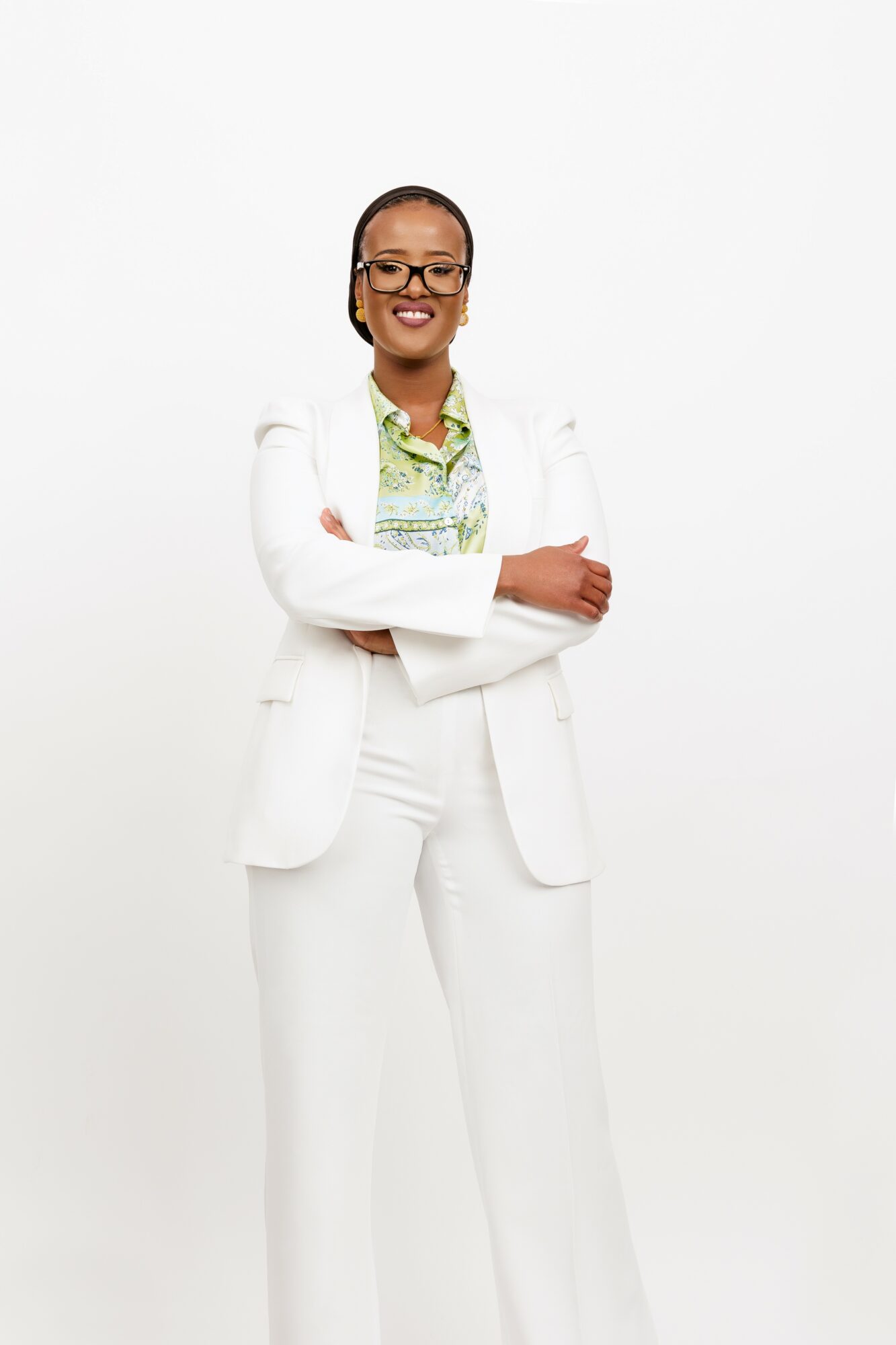
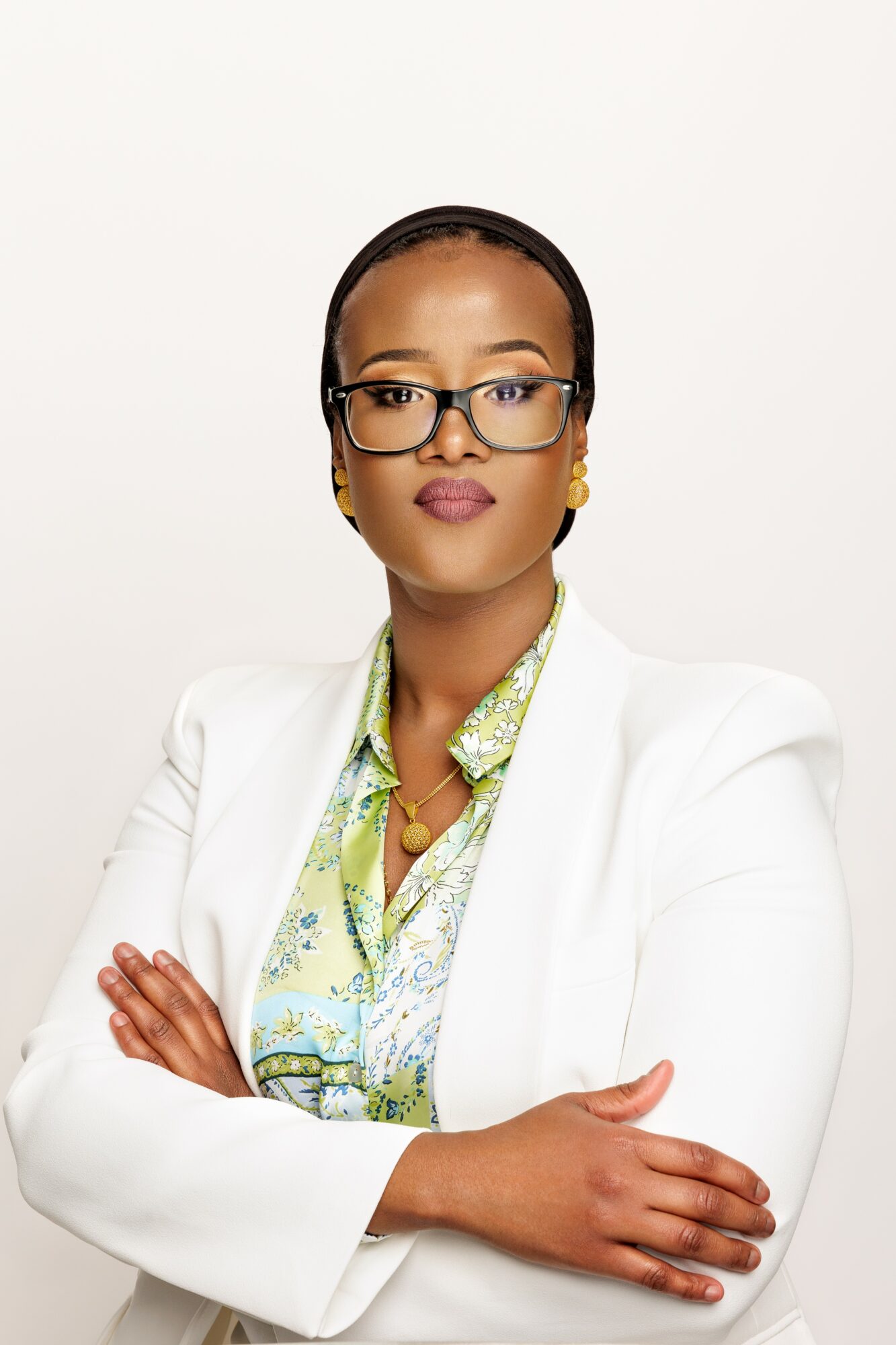
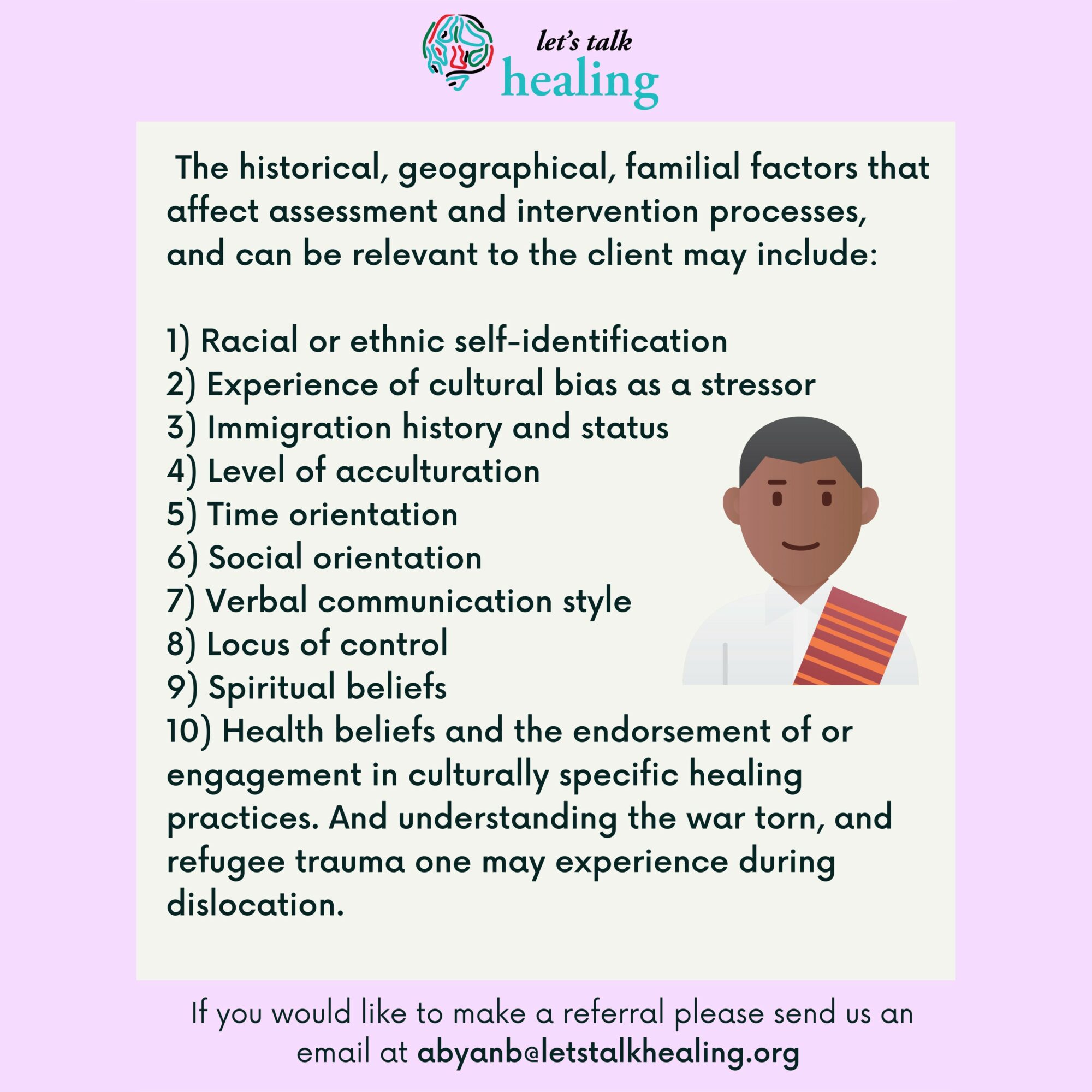

Image Credits
Sahra Qaxiye
Anisa Hagi-Mohamed

